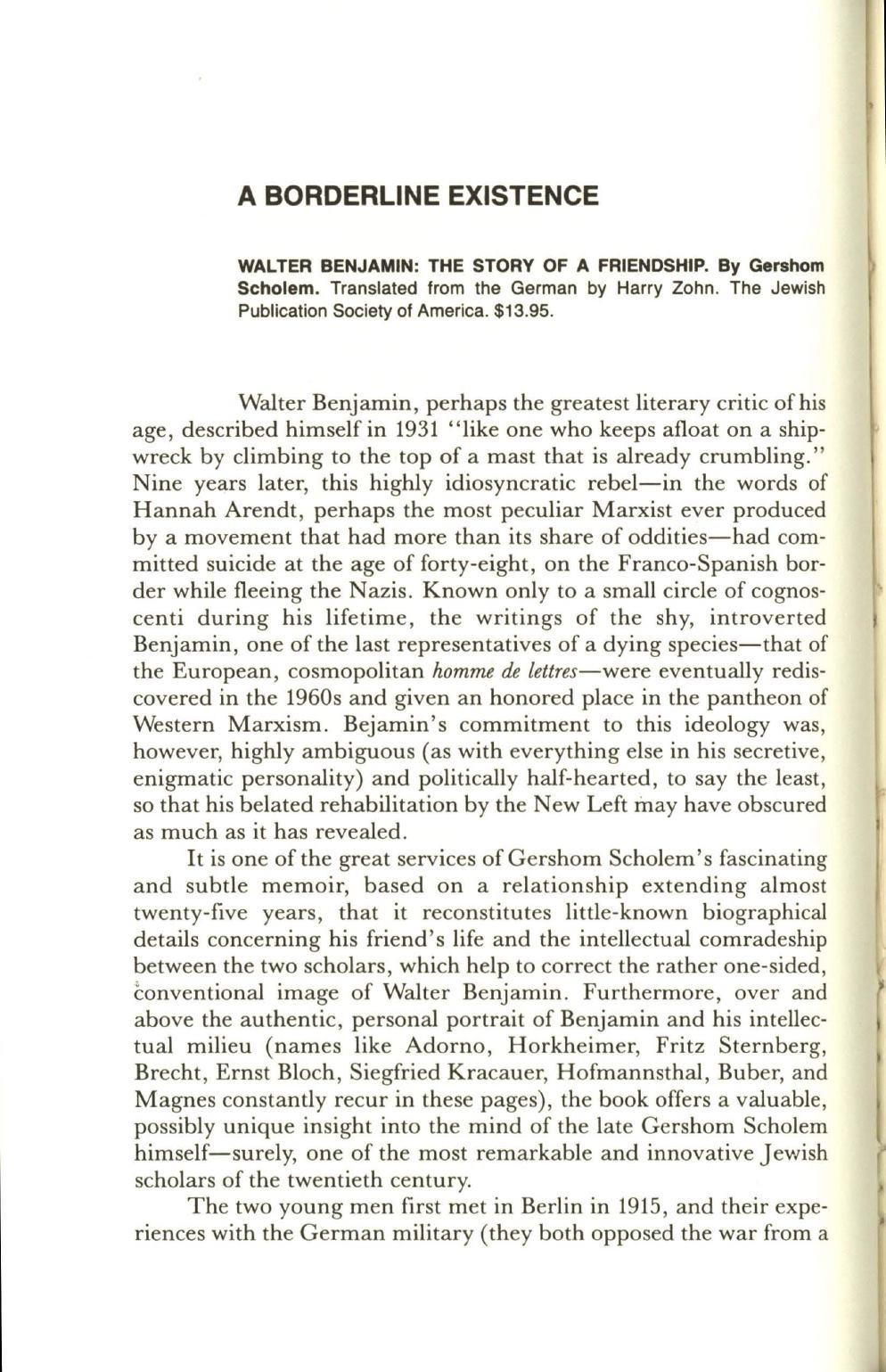
A BORDERLINE EXISTENCE
WALTER BENJAMIN: THE STORY OF A FRIENDSHIP. By Gershom
Scholem.
Translated from the German by Harry Zohn. The Jewish
Publication Society of America. $13.95.
Walter Benjamin, perhaps the greatest literary critic of his
age, described himself in 1931 "like one who keeps afloat on a ship–
wreck by climbing to the top of a mast that is already crumbling."
Nine years later, this highly idiosyncratic rebel-in the words of
Hannah Arendt, perhaps the most peculiar Marxist ever produced
by a movement that had more than its share of oddities-had com–
mitted suicide at the age of forty-eight, on the Franco-Spanish bor–
der while fleeing the Nazis. Known only to a small circle of cognos–
centi during his lifetime, the writings of the shy, introverted
Benjamin, one of the last representatives of a dying species-that of
the European, cosmopolitan
homme de lettres-were
eventually redis–
covered in the 1960s and given an honored place in the pantheon of
Western Marxism. Bejamin's commitment to this ideology was,
however, highly ambiguous (as with everything else in his secretive,
enigmatic personality) and politically half-hearted, to say the least,
so that his belated rehabilitation by the New Left may have obscured
as much as it has revealed.
I t is one of the great services of Gershom Scholem' s fascinating
and subtle memoir, based on a relationship extending almost
twenty-five years, that it reconstitutes little-known biographical
details concerning his friend's life and the intellectual comradeship
between the two scholars, which help to correct the rather one-sided,
conventional image of Walter Benjamin. Furthermore, over and
above the authentic, personal portrait of Benjamin and his intellec–
tual milieu (names like Adorno, Horkheimer, Fritz Sternberg,
Brecht, Ernst Bloch, Siegfried Kracauer, Hofmannsthal, Buber, and
Magnes constantly recur in these pages), the book offers a valuable,
possibly unique insight into the mind of the late Gershom Scholem
himself-surely, one of the most remarkable and innovative Jewish
scholars of the twentieth century.
The two young men first met in Berlin in 1915, and their expe–
riences with the German military (they both opposed the war from a


